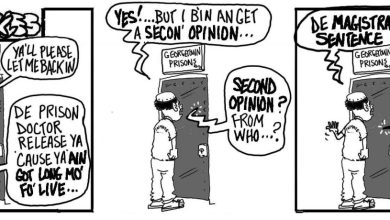New York leaders must act now to help thousands suffering from sickle cell disease

Imagine you suffer from a disease that causes you chronic, severe pain and shrinks your life expectancy by up to three decades. Your options for treatment are extremely limited, as few doctors understand your condition. You rely on the emergency room for primary care and find yourself returning so much that it disrupts your ability to live normally.
For the 10,000 New Yorkers living with sickle cell disease, this is their reality. They battle symptoms like vision problems, a high risk of stroke, kidney disease, frequent infections, and anemia. Adults with sickle cell often fight to maintain stable employment because of the unpredictability of the disease, including the possibility of long hospital stays. Pain flare-ups prevent people from working, attending school, and participating in their communities.
Sickle cell disease disproportionately affects African Americans and Hispanic Americans in New York. One in every 230 African American babies and one in every 2,320 Hispanic babies here are born with the disease, significantly higher than the one in about 41,000 Caucasian babies born with sickle cell. All these rates are higher than their respective national rates.
With thousands of New Yorkers struggling to deal with sickle cell every day, we can all agree that the situation in New York is severe. It is heartbreaking to say that on top of all this, sickle cell patients are also stuck dealing with massive inequities in our healthcare system that make care inaccessible for so many. Sickle cell was discovered over 100 years ago but has gotten little attention, research funding, or pharmaceutical investment. This means there are few drugs available and a major shortage of providers that have the knowledge to effectively treat the disease.
As a result, sickle cell patients face very real disparities in treatment accessibility and health outcomes. The CDC Foundation reports that many healthcare providers inaccurately perceive sickle cell patients as “drug-seekers” or make them wait longer times to see a doctor or get pain medication when visiting the emergency department. Patients experiencing a pain crisis should be treated with compassion, not skepticism.
Medicaid coverage presents yet another challenge for sickle cell patients, on which over 40% of these patients rely. A 2017 study from the American Society of Hematology suggests that sickle cell patients on Medicaid have less access to specialist care than patients with private insurance, which limits the availability of preventative care for these patients. Additionally, Medicaid coverage is decided by individual state programs, meaning that available covered treatments are dependent upon where a patient lives. Add to this the lack of attention and funding that sickle cell has received over the years, and you’ve got massive gaps in coverage and treatment accessibility.





